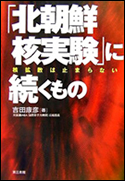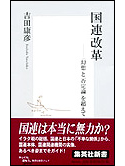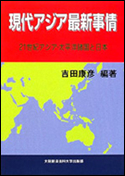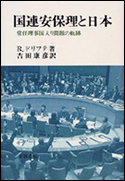US-DPRK Relations Deadlocked over “Declaration List”
A substantial process of denuclearization of the Korean Peninsula was due to be completed by the end of 2007, with the disablement of three active nuclear facilities in Nyonbyong;(a) a nuclear reactor, (b) a fuel-rod manufacturing factory and (c) a plutonium reprocessing plant. The denuclearization process was to be followed up by the complete and accurate declaration of a list of the DPRK’s overall nuclear program.
However, differences emerged over the list which Washington regarded as incomplete and inaccurate, as it failed to contain the existence of a uranium enrichment program and an alleged delivery of nuclear technology to Syria. The DPRK, on the other hand, argued that the North Koreans had handed an informal note to the American officials in November 2007, admitting the DPRK had attempted uranium enrichment but had abandoned it for technical reasons. It had also denied any assistance in nuclear technology to Syria.
In addition, Pyongyang claims that the denuclearization process has to be implemented with the principle of simultaneous action, namely “word by word”, “action by action”. Washington has not taken legal steps to remove the sanctions against the DPRK, which it designates as terrorist-sponsoring state. The Bush Administration now pleads with Beijing for exerting its influence over Pyongyang to submit what it regards as “complete and accurate list.”
One encouraging sign, meanwhile, is that the disablement work has been going on in Nyonbyong, though a bit behind the schedule, by a group of engineers of the two countries. The work is reported to be completed by the end of March, by which time a breakthrough is expected to be forthcoming.
The performance of the renowned New York Philharmonic Orchestra in Pyongyang on 26 February was instrumental in fermenting a peaceful and amicable atmosphere in the minds of the Americans and North Koreans, when they were listening to the national anthems of the United States and the DPRK being played by the American musicians. The Korean folk-song Alirang was also played at the end as an encore. However, Secretary of State Condoleeza Rice cautioned against excessively positive political effects of the musicians’ visit to Pyongyang.
South Korea has a New President
In Seoul, Mr. Lee Myung-bak was installed as new President of South Korea on 25 February. The businessman-turned President is less nationalistic and less enthusiastic in his stance toward the North, now making a thorough review of Seoul’s previous rapprochement policy toward Pyongyang, but the isolated State in the North is likely to survive for the years to come. The DPRK is now preparing for creating what it terms “prosperous great power” in 2012, the 100th birthday of the Great Leader Kim Il-sung.
Informed sources in Pyongyang indicated to me that North Korea would not make a compromise in dealing with Washington on the denuclearization issue. The DPRK regards removal of the designation of a terrorist-sponsoring state as a keystone of U.S. hostile policy toward the Kim Jong-il regime.
The sources recalled that the DPRK’s ultimate goal was not to become a nuclear-weapon state, but to restore peace and stability over the Korean Peninsula by putting an end to the Korean war, which, after more than half a century, is still in an armistice stage. No matter who might be the next President, Barack Obama, Hillary Clinton, or John McCain, the sources noted, they were determined to fight U.S. imperialism until the American policy of hostility was finally withdrawn.
I am of the impression that Kim Jong-Il has somewhat given up hope for reaching a diplomatic solution to the nuclear and other political issues over North Korea during the second and final term of George Bush, which ends in January 2009. Even in that case, nothing would change on the Peninsula
There also seems pessimism in Washington. Lieutenant General Michael Maples, Director, Defense Intelligence Agency (DIA), the Pentagon’s intelligence office, testified on 27 February that the DPRK may be tempted to conduct new missile and nuclear weapon tests, once the six-party talks in Beijing should collapse.
Japanese Members of Parliament ready to negotiate with Pyongyang Leaders
Japan-DPRK relationship remains stalemated over the abduction case. There has been no official contact between the two countries to break the deadlock. Japan’s economic and monetary sanctions against North Korea has been enforced since 2004, and more rigorously since 2006, in the wake of the nuclear test.
Japan also refrains from extending any energy and other economic assistance to North Korea, at a time when the four other participants in the six-party talks in Beijing, namely, China, South Korea, Russia and the United States, have come out to deliver heavy oil and other humanitarian assistance in exchange for a gradual process of denuclearization. It goes without saying that Japan would find itself isolated when Washington and Pyongyang could find a breakthrough to iron out their differences over the controversial list of all nuclear programs.
It is against this background that a group of conscientious members of Parliament has formed an across-the-board league of both ruling and opposition parties to exchange their views and study positive measures on Japan-North Korea relations. They are prepared to send a supra-partisan goodwill mission to Pyongyang in the near future.
Behind the scenes are Mr. YAMAZAKI Taku, a senior ruling Liberal-Democratic Party member and ex-Vice President of the LDP, who is keen to play a pioneering role in implementing the Joint Japan-DPRK Declaration which ex-Prime Minister KOIZUMI Jun-ichiro signed during his one-day visit to Pyongyang in 2002. The declaration has been left un-implemented as a result of deterioration of the abduction case.
It is Prime Minister FUKUDA Takeo who should be responsible for the overall circumstances. He took power as Prime Minister in September 2007, succeeding the hawkish ABE Shinzo who had insisted upon a thorough solution to the abduction case as pre-requisite to any moves to normalize relations between the two countries. Upon assuming premiership, Mr. FUKUDA had said that he would do his best to settle the abduction issue by his own hand.
However, Mr. FUKUDA apparently adopts a wait-and-see policy while Washington and Pyongyang are entangled over the denuclearization process. He is unlikely to move himself, unless there is a breakthrough in the US-DPRK relations. (2008-2-29)









